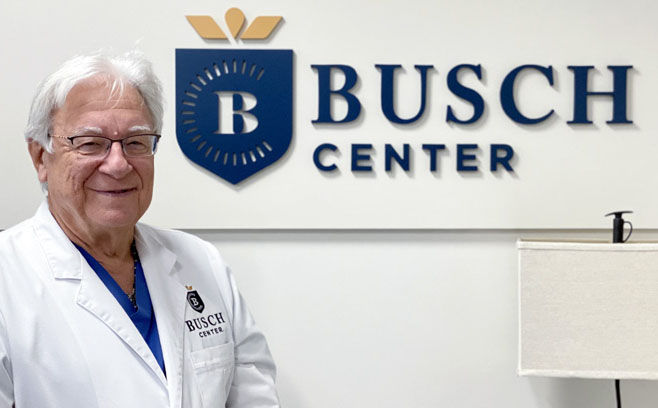RESOURCES

The Basics of Prostate Health
What Is the Prostate? The Prostate is a gland in the male body located just below the bladder in front of the rectum. It also wraps around the upper part of the urethra, the tube that carries urine from the bladder out of the body. The prostate’s job is to produce fluid that becomes part of semen. This means any problems with it can affect urination and sexual function. Prostate cells also secrete various proteins into the bloodstream, one of...

Pioneering Non-Invasive Prostate Cancer Treatment Using the Latest Tech in MRI Guidance
Having the right technology to perform the TULSA procedure is crucial to detecting all the cancerous tissue in the prostate and selectively treating it with laser ablation. When choosing the MRI equipment needed for the Busch Center, Dr. Busch turned to Profound Medical and the "Healthineers" at Siemens to provide the best option in MRI and robotically-controlled ultrasound technology--a scanner providing "gradient imaging," a feature necessary...

The Greatest Christmas Gift of All — Time and Hope
Dear Dr. Joe and Kathy Busch, We woke up this morning to snow blanketing our home, bestowing a White Christmas wonderland on us for the first time in ten years. What a gift! Gazing out at this unexpected gift of nature, I thought of all those souls that are less fortunate and prayed that they might receive the gift of peace and contentment promised by all the collective good will that comes with this season. Last week our area had the...

Ask Your Doctor About MRI-Compatible Pacemakers
The use of pacemakers has increased dramatically in recent years, partly due to our aging society. An estimated 75 percent of patients who have an implantable cardiac electronic device, such as a pacemaker, will need magnetic resonance imaging (MRI) during their lifetime, according to the Mayo Clinic. However, many types of pacemakers can be risky to use in an MRI, which uses a large magnet and radio waves to produce clear, accurate images of...

Staging and Next Steps
At Busch Center, we understand that being diagnosed with prostate cancer can be scary and overwhelming. We work with each patient – and their loved ones – to explain every step of their journey, answer their questions, and provide personalized, compassionate care. Once a patient is diagnosed with prostate cancer, one of our first steps is to “stage” it to determine whether it’s considered low, intermediate or high-grade cancer. We...

Let’s Talk About TULSA – An Effective Treatment Option for Prostate Cancer
In less than five years, prostate patients were coming to me from all over the U.S. and outside of the U.S. to have their prostates scanned. Studies have shown that 70% to 80% of men with an elevated PSA, or prostate-specific antigen, who have a biopsy do not have cancer. I am the first interventional radiologist in America to adopt TULSA-PRO and our practice is the second in the country to introduce it. Read more in my interview with...

Cruciferous Vegetables and Your Prostate Health
Did you know compounds in cruciferous vegetables, like broccoli and cauliflower, may target and inhibit prostate cancer cells in the body? Unlike other vegetables and plant foods, cruciferous vegetables are rich sources of glucosinolates, sulfur-containing compounds that cause their strong scent and somewhat bitter taste. Researchers are especially interested in sulforaphane, a specific compound in...

Journal of Urology PSA Article
A recent article from the Journal of Urology found the use of PSA density less than 0.15 ng/ml/ml in the presence of prebiopsy negative MRI was the most useful factor to identify men without clinically significant prostate cancer who could avoid biopsy. Learn more here.
